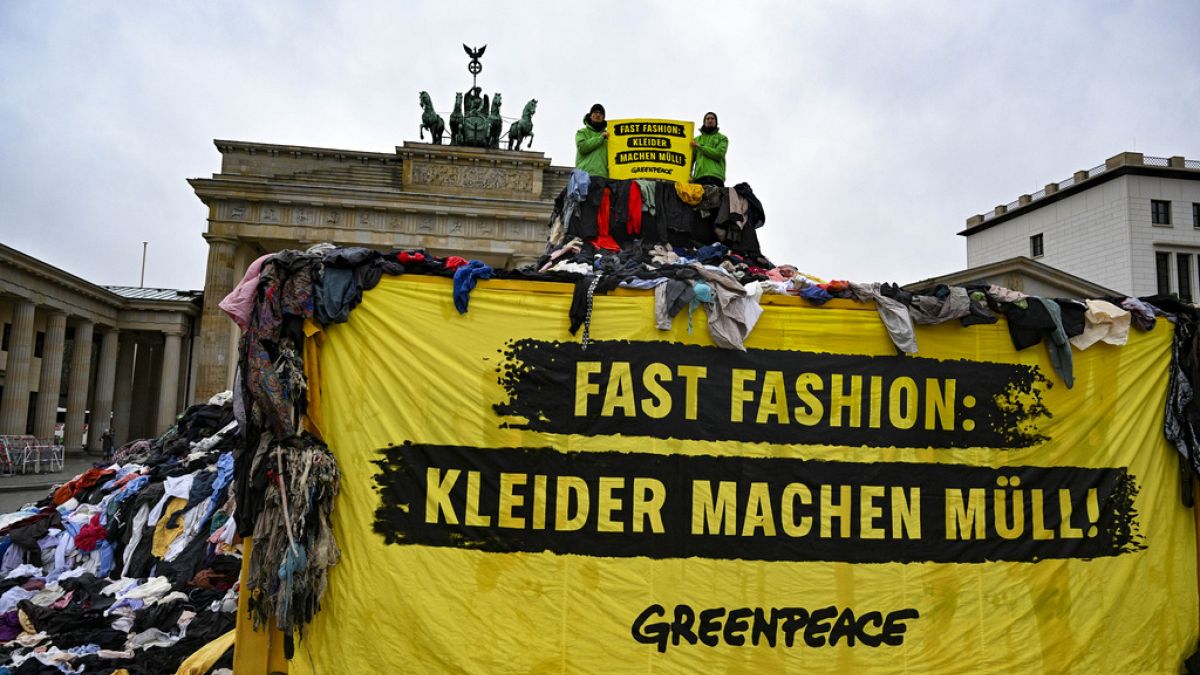EU to discuss Rwanda-style asylum centres across Europe

Migration remains probably the most divisive issue in the EU, with countries accusing each other of refusing to share the burden.
Next week’s summit, which will be held less than a week after Albania’s migrant centres opened for business, was expected to be hard fought.
“I’m not sure how big a fight there will be,” one EU diplomat said. “There’s quite a wide group that wants to explore this.”
Frontex, the EU’s border agency, says irregular border crossings fell by 39 per cent to almost 140,000 in the first eight months of 2024, compared to the same period last year.
EU countries plus Norway and Switzerland received 85,000 asylum applications in May, down by a third compared to a peak reached last autumn, according to the European Union Agency for Asylum.
‘Vicious cycle’
Attitudes on migration have unquestionably hardened.
On Saturday Donald Tusk, prime minister of Poland, said it would suspend the right to asylum on its soil. A critic of EU migration policy, he vowed to demand the EU accept his decision at the summit to head off legal issues from the ban.
“The EU is trapped in a vicious cycle of bad migration policy, and migration is very much Europe’s albatross,” said Tarek Megerisi, of the European Council on Foreign Relations think tank.
“Member states continue doubling down on policies to externalise Europe’s borders to outside the bloc, despite these policies having limited efficacy and actually driving migration further into illicit channels and into the hands of criminal gangs,” he said.
“The fixation on externalisation policies, despite their inefficacy, looks set to deepen under the new commission. Given there’s no reason why they’ll suddenly start working now, migration could very well eventually lead to the end of Schengen and become the force that undoes much of the EU’s progress towards a closer Europe.”
Denmark this week announced it would reintroduce temporary border controls in another blow to the bloc’s Schengen Zone of passport-free movement.
Copenhagen’s move on security grounds made it the seventh EU member state to tighten their frontiers. Others include France, Italy, Austria and Sweden.
Related
Scotland’s biggest landowner is fashion brand billionaire
A European fashion tycoon is the biggest landowner in Scotland—and perhaps even the UK. Danish billionaire Anders Holch Polvsen named the Highlands' richest
EU targets food and fast fashion in new war on…
Polish presidency of the EU Council announced breakthrough in early hours after marathon overnight talks on food waste reduction targets and measures t
Fashion must-haves for your spring semester in Europe
Preparing to study abroad can be incredibly intimidating. With all the emotional turmoil you’ll face in the weeks prior, the last thing you�
Worldview: Ukraine’s Adaptive Fashion for the War Wounded
🇺🇦 Ukrainian Fashion Week presents adaptive clothing for combat injuries. More than 40 fashion brands presented their latest collections at Ukrainian Fash











